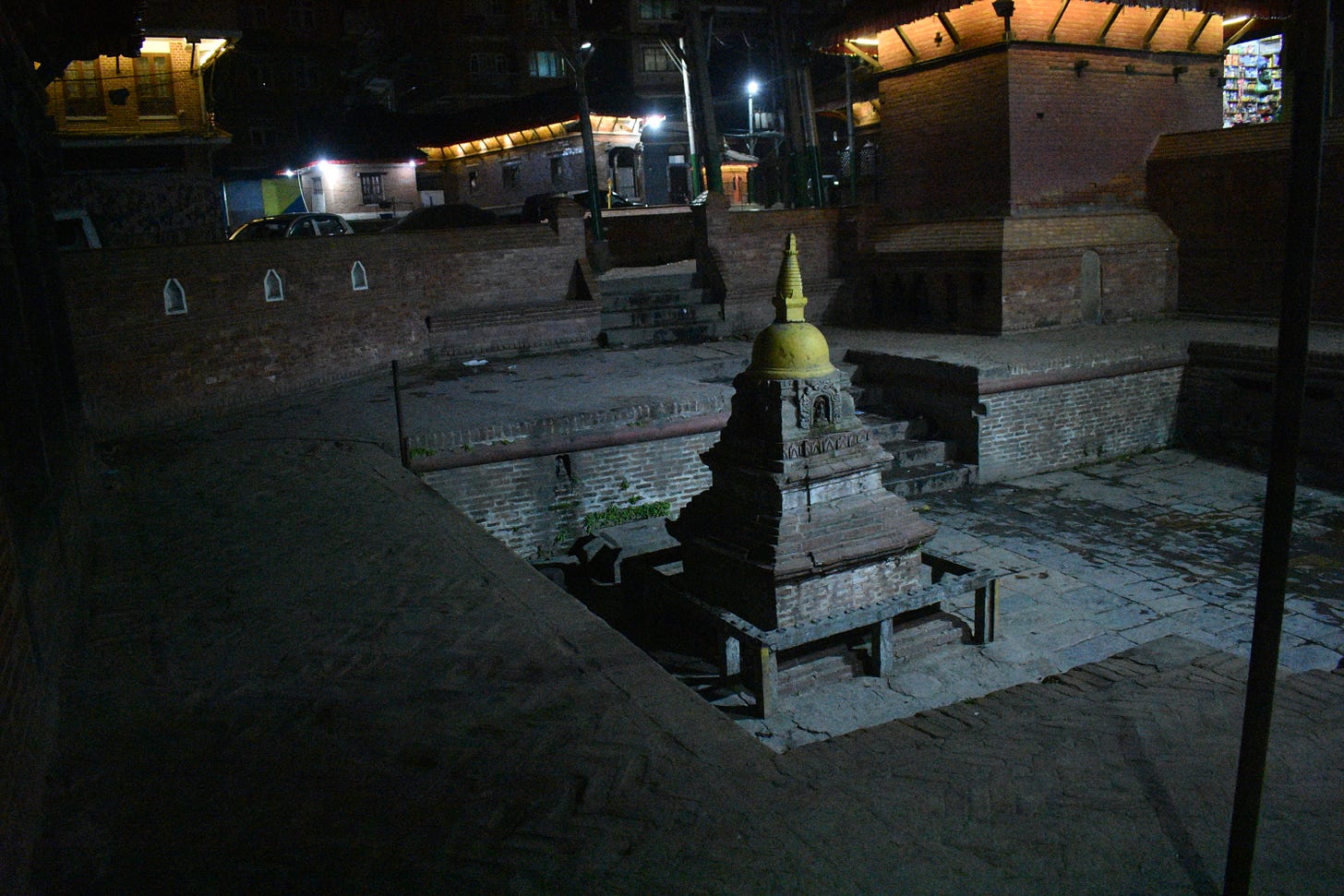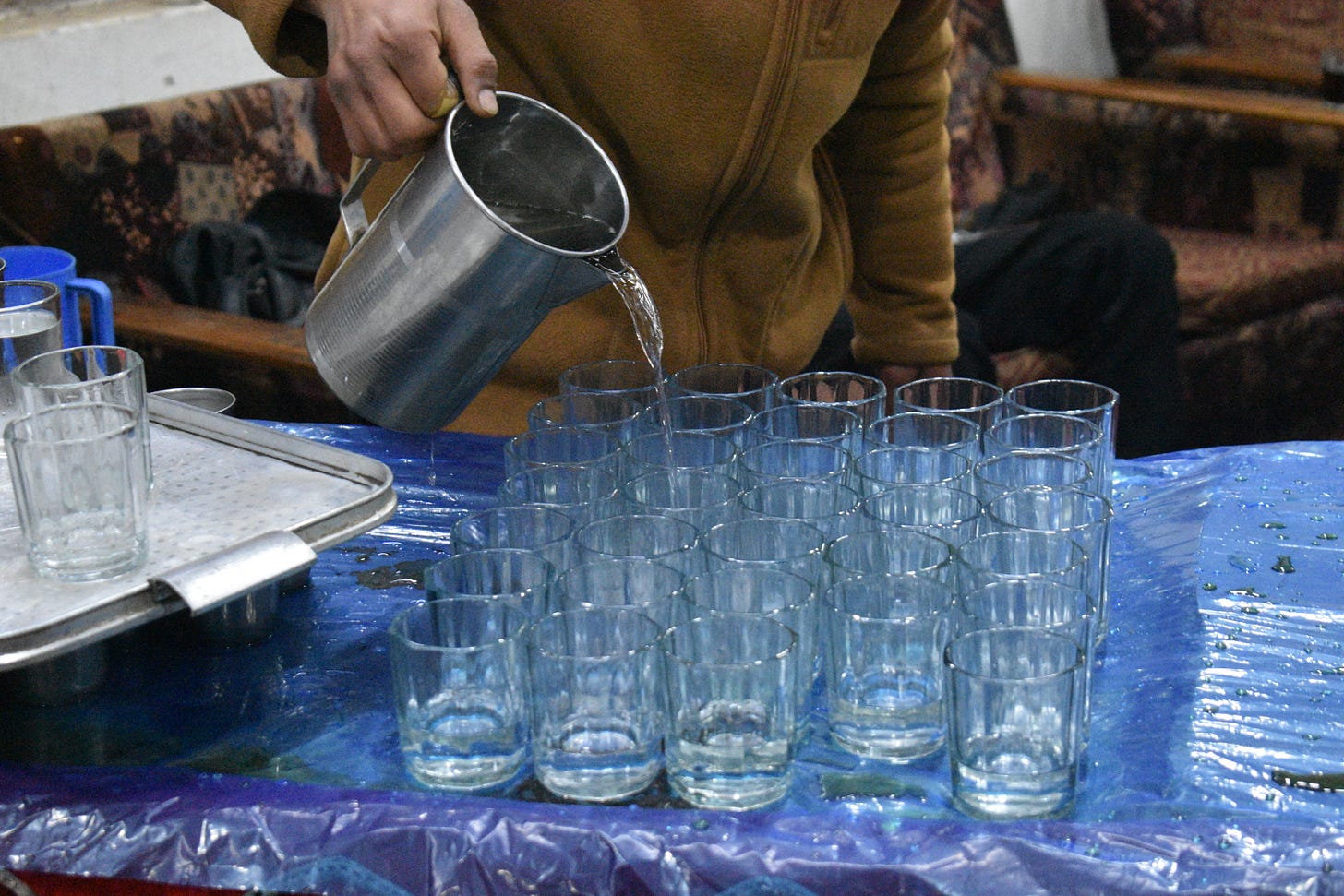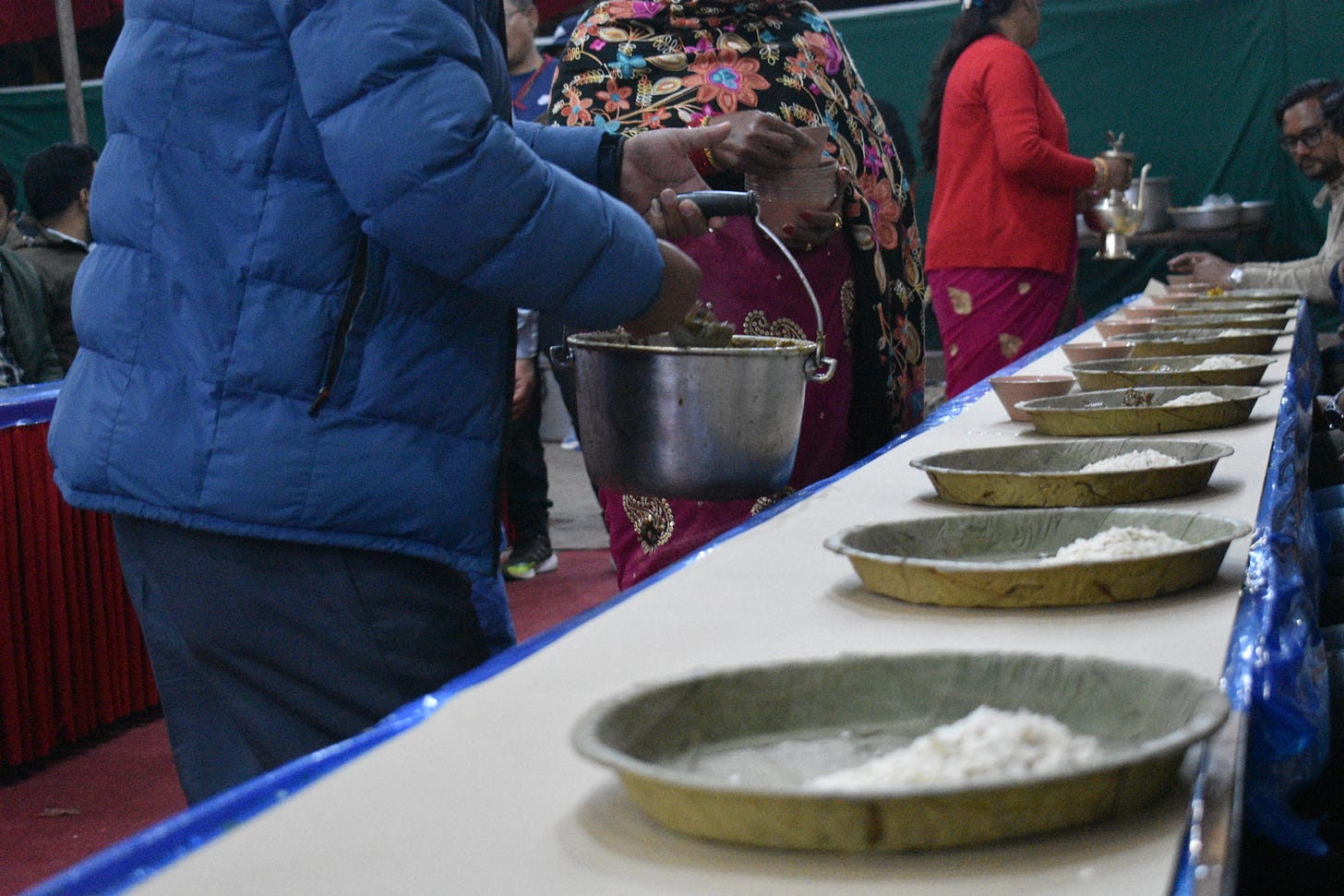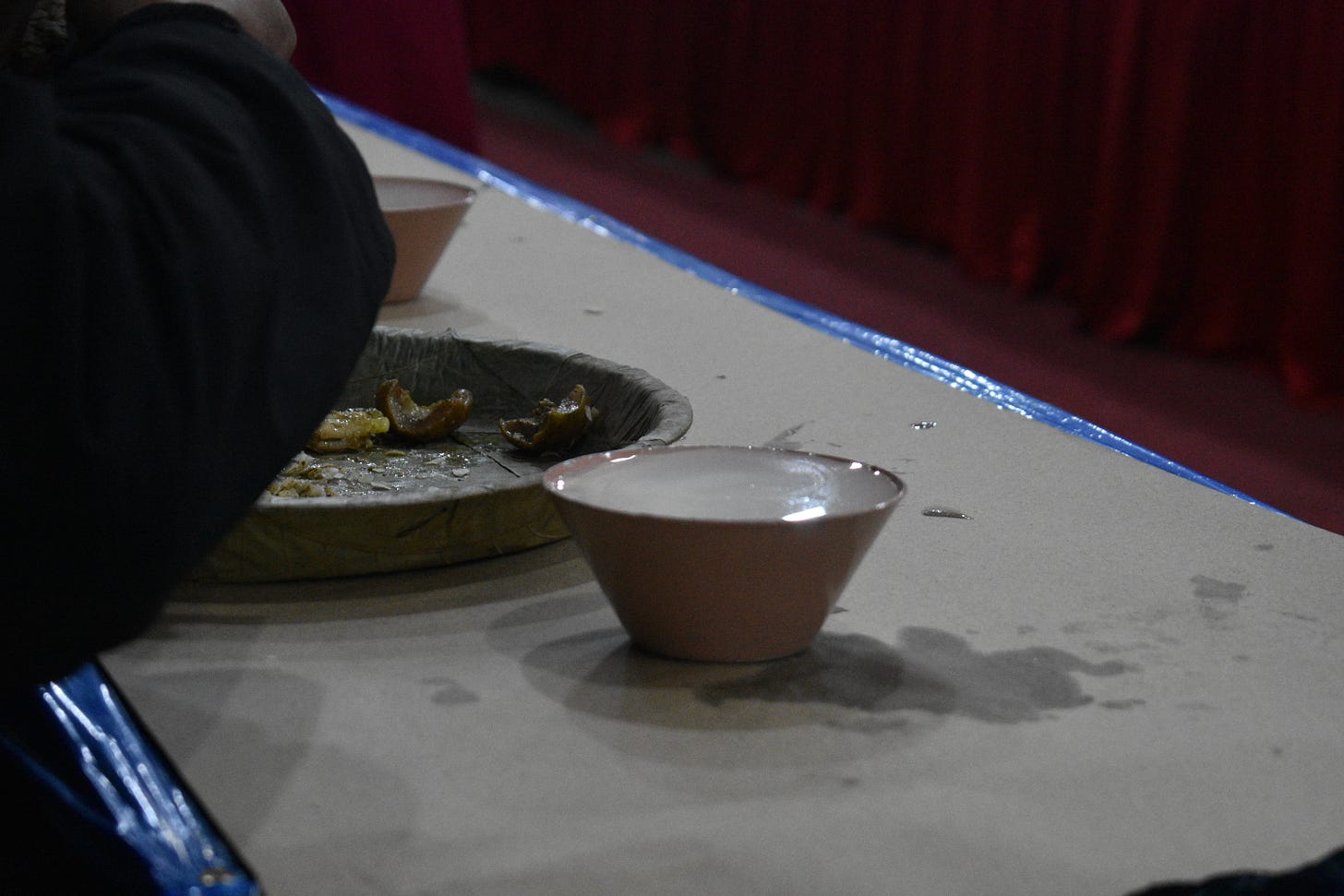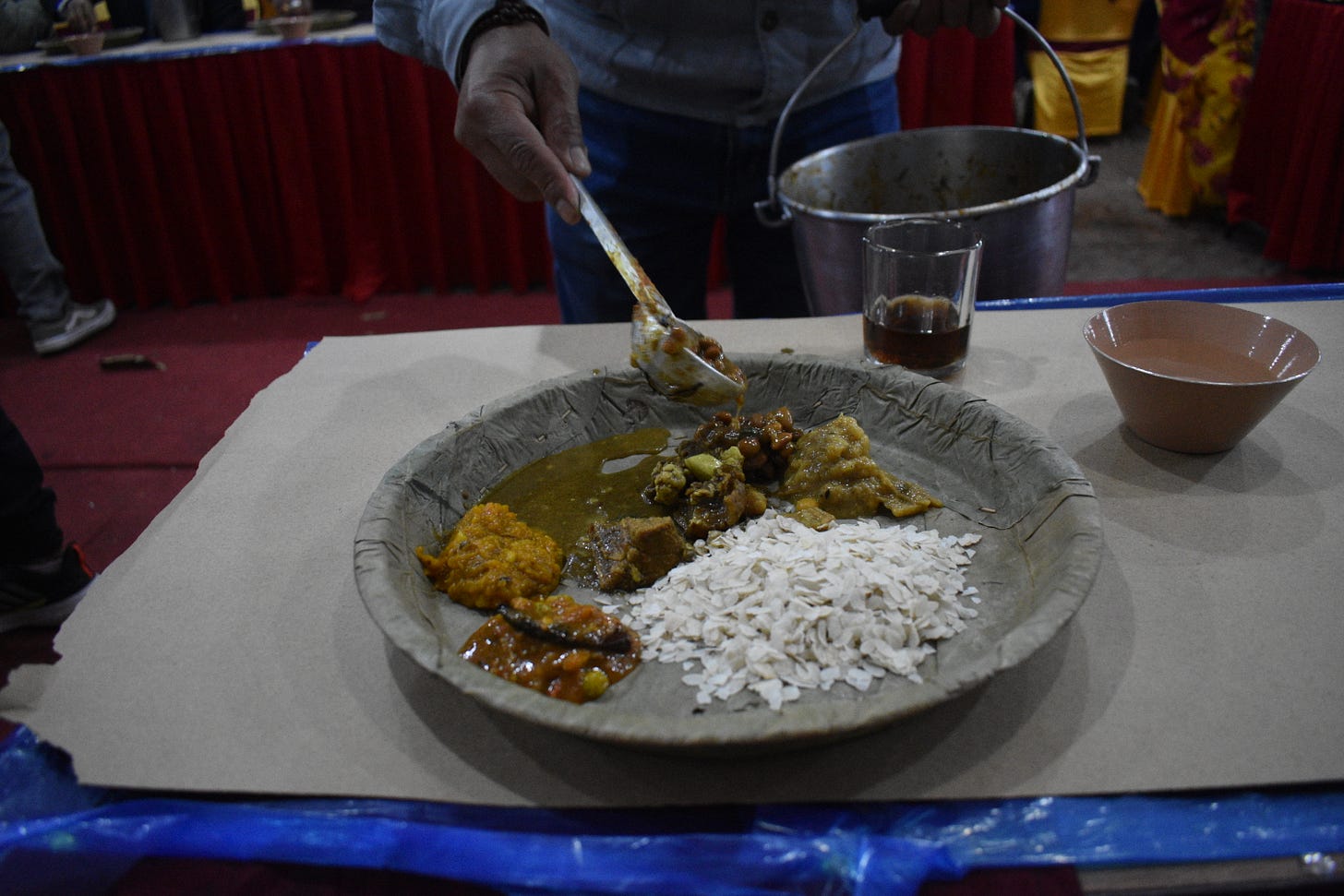In many ways, parties for a wedding, pasni, bratabandha, or the like can be very much… the same. The rituals, obviously, differ according to the occasion, but often these rites and ceremonies take place earlier in the day with a small select group and the celebration, generally in the evening, tends to follow a similar format. One arrives, greets the celebrants and then there are snacks and drinks, to be enjoyed while chatting with any common friends you might have (or not) before a buffet dinner that itself follows the party format, eaten just when you’re ready to bow out.
With all due respect to all such parties I’ve attended—and very much enjoyed—the pasni, or rice feeding ceremony1, I attended last week was refreshingly different.
Held in an traditional, communal building deep in old Patan, side by side with temples and a hiti, it felt the best kind of blend of old and new. There were bright saris and a low red stage, and balloons and streamers too, sure, but not the modern, gaudy shininess that one can at times encounter in party palaces; it was a simple, functional building, a community gathering space that has seen many such joyful gatherings.
It was also a delight for me because we’ve all been to those weddings where you know the bride or the groom (or their parents!) but otherwise have few or no friends in common and are not quite sure what to do with yourself—and this was not that. Instead the baby’s parents were part of a large circle, or several overlapping circles, of friends, and it was really a nice evening in that sense, too: talking to people, catching up over a glass of chaang or aila.
Which brings me to the next thing: the building wasn’t the only thing that was traditional, the food and drink were, too. No beer, whisky, or wine, generally party staples: Newari alcohol was the booze on offer, and it complemented the Newari snacks just as well as you might imagine. As a nod to non-drinkers and children there were soft drinks, so a touch of the modern had crept in there, but that was the only thing. (Note that coke is a good mixer for aila, so I’m not complaining.)
I’ll admit it: I usually fill up on snacks at parties, with just a token taste of the buffet, if at all, when pressed. The snacks are usually so varied and interesting, while I find the main meal to be less so. This time, however, dinner was an event, a bhoj, and groups moved into the adjoining room in turn to sit at the long tables, where the food would begin circling. Only after the seated guests had completed their feasts and headed for home was a new group ushered in, and the rounds began again. This was delicious, homemade, varied fare: tasty, fun and interesting to eat.
I know I am not expressing it well, not doing it justice; but… it was such a very enjoyable evening (and the baby was darling, too).
Listen. It was fun. And that’s not water.
I’ve attended the ceremonial part of a pasni twice over the years that I can recall, for babies from Sherpa and Newari families. Two very different ethnic groups and the babies were dressed in their respective traditional outfits and some of the food choices differed, yet in the main, it’s the same; a ceremony that involves various family members taking turns to feed the baby tiny bits of not just rice, but other varied tidbits too. And yeah it’s called a rice feeding ceremony but that “feeding” is usually just a smear, a taste; after all, it’s baby’s first time trying solid food. Sometimes they’re into the whole eating thing, sometimes less so.



